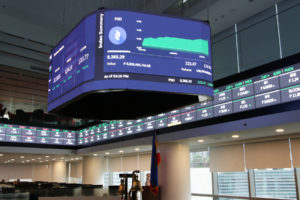Weak demand caused by the ongoing coronavirus pandemic will likely keep domestic prices in check all the way until 2022, according to the central bank, which last week returned its inflation forecast for this year to its original prediction after adjusting it upward in August.
In an online press briefing, Bangko Sentral ng Pilipinas (BSP) Deputy Gov. Francisco Dakila Jr. said the Monetary Board was expecting the inflation rate for 2020 to average 2.3 percent by the end of the year.
This downward revision from the 2.6 percent forecast the policymaking body made a little over six weeks ago came after new trends were detected in key price determinants of basic goods and services in the local economy.
“The factors that contributed to the adjustment of the inflation path include the lower oil prices for this projection round, as well as the impact of the lower than expected inflation rate for August,” he said.
“As we know, we had projected an inflation range of 2.5 to 3.3 percent for August, whereas the actual rate 2.4 percent,” he explained. “And that causes an adjustment, it carries over to the forecasts for the succeeding rounds.”
In theory, a lower inflation environment will give monetary planners more space to reduce interest rates and implement additional measures to boost liquidity in the financial system—moves that are meant to buttress growth in the economy that has been savaged by the COVID-19 public health crisis.
However, BSP Gov. Benjamin Diokno has opted to adopt a more cautious stance in recent weeks, saying he wants to see the economy better absorb the P1.5 trillion the central bank has so far released, before undertaking additional measures.
Dakila added that the Monetary Board also saw it fit to lower its inflation forecasts for the next two years.
“For 2021, the baseline at the last meeting was at 3 percent,” he said. “Now it stands at 2.8 percent.”
A similar cut was made for the 2022 inflation forecast which previously stood at 3.1, and has now been lowered to 3 percent.
“This is a slight lowering of the inflation path compared to the previous baseline path,” Dakila said. “However, we continue to retain the balance of risks on the downside over the policy horizon from 2020 to 2022. This owes largely to the risk of potential disruptions to the domestic and global economic activity amid the ongoing pandemic.”
Last Thursday, the Monetary Board decided to maintain the interest rate on its key overnight reverse repurchase facility—on which banks price their own loans—at 2.25 percent. INQ


